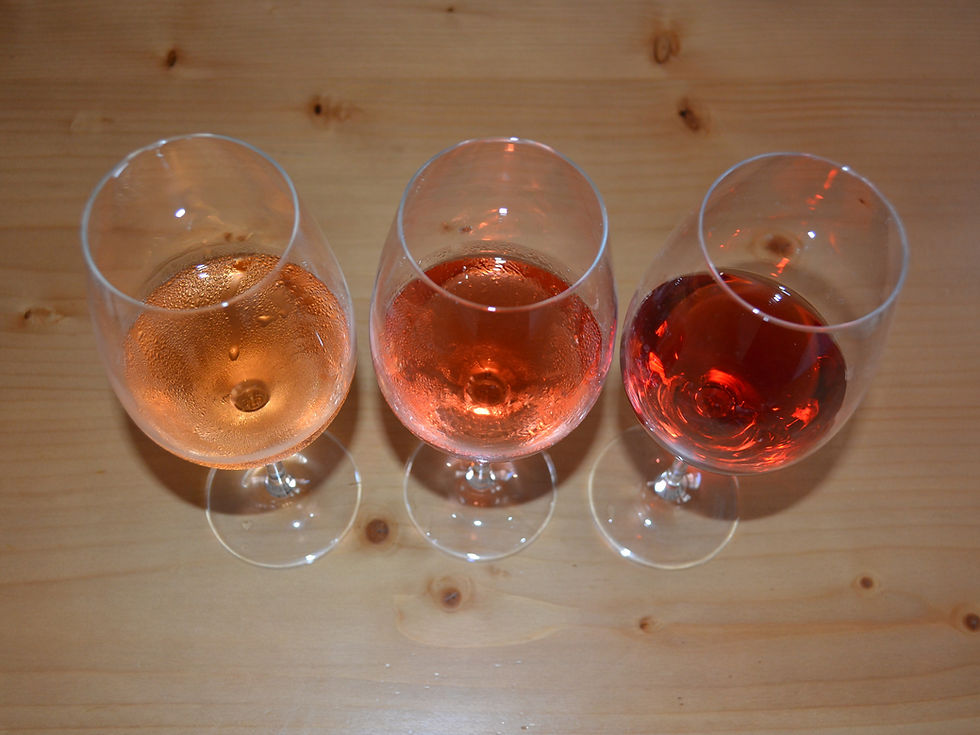What is orange wine?
- Iván González Gaínza

- Sep 29, 2023
- 2 min read
Despite the name, this is not a wine made from oranges. Instead, it is a unique type of white wine that is crafted by leaving grape skins and seeds in contact with the juice, resulting in an orange hue. This technique is also known as 'amber wine', 'skin fermented white wine', or 'skin contact wine', and in Spain, mostly in Catalan speaking areas, it is referred to as 'Brisat'.

Orange wine should not be confused with co-fermented wines or vino de naranja. Co-fermented wines are made by fermenting different grape varieties in the same vessel, and vino de naranja is made with a blend of grapes and bitter orange peel.
To make orange wine, white grapes are crushed and left to ferment with the skins and seeds still attached. This natural process uses few to no additives, and sometimes not even yeast, leading to a distinctive taste that is very different from regular white wines.

The colour of orange wine is determined by the duration of skin contact with the juice during fermentation.
This time frame can span from four days to a year, but most winemakers opt for a range of 10 to 60 days to achieve the desired hue. Some orange wines can look like a golden white wine and others can have a much richer amber hue. Orange wines are often described as robust and bold, reminiscent of tea and characterized by a nutty aftertaste due to oxidation. Additional flavours that come to the fore include citrus, stone fruit, spices, and herbs. The length of fermentation time determines the intensity of the taste. It's dry, acidic, and contains tannins comparable to red wine, but with a lower alcohol content.
When serving orange wine, it is best to do so at a slightly warmer temperature than white wines to fully appreciate its personality. Serving an orange wine at 12º-14ºC is ideal. As the wine gets warmer, you will notice its evolving taste.

Due to their bold flavour, orange wines tend to pair well with strong flavours, such as mature cheese, curry dishes, and African and Asian cuisine. It can also pair well with a seafood paella. This natural winemaking style has been around for thousands of years, originating in Georgia during the Bronze Age era.
It is still a rarity compared to other types of wines, but there is a growing interest in this style due to its authenticity and connection to the natural wine movement.

If you're looking to try an orange wine in Mallorca, we recommend the 7103 Petit Celler Brisat. This Santa Maria del Camí wine is produced using the local Giró Blanc grape variety. You'll be captivated by its stunning amber colour and intense, concentrated aroma of apricot and nectarine. On the palate, it's warm and rich, with notes of stone fruit and the unique nuttiness we mentioned earlier.



Comments